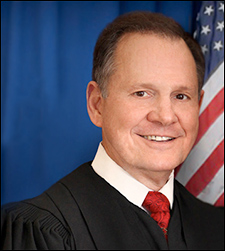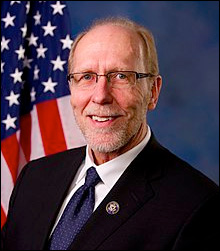By Jim Ellis
 April 18, 2019 — The first of eight quarters comprising the 2020 election cycle is now complete and, with that, most of the first Senate financial disclosure reports have been published. Below are the latest available cash-on-hand figures for the 31 in-cycle senators who are seeking re-election.
April 18, 2019 — The first of eight quarters comprising the 2020 election cycle is now complete and, with that, most of the first Senate financial disclosure reports have been published. Below are the latest available cash-on-hand figures for the 31 in-cycle senators who are seeking re-election.
As you can see, the overwhelming number of incumbents are in strong financial position with Texas Sen. John Cornyn (R) having more in the bank than anyone. He will need a large war chest because Texas is such an expensive state.
In 2018, Beto O’Rourke, who was challenging Sen. Ted Cruz (R-TX) before declaring his presidential candidacy, raised over $80 million — some $34 million more than his incumbent opponent. Combined, the two banked over $125 million, not counting substantial independent expenditures that helped both men.
Not surprisingly, Senate Majority Leader Mitch McConnell (R-KY) raised more money than anyone else in the first three months of 2019 — some $7.991 million, exceeding Sen. Cornyn but by just over $200,000.
The low-end senator is rather surprising, since she is again likely headed for a competitive campaign. Posting numbers that would even be low for a US House race, Sen. Cindy Hyde-Smith (R) raised only $232,239 for the quarter and has just $218,703 in the bank.
The senator is again expected to face former US Agriculture Secretary and ex-Mississippi congressman, Mike Espy (D). The two battled each other in the 2018 special election, with Sen. Hyde-Smith prevailing 54-46 percent in the Nov. 27 run-off. Hyde-Smith was appointed to fill the balance of Sen. Thad Cochran’s (R) final term. Cochran resigned his seat due to health reasons.
All of the following figures are current through March 31, 2019, with the exception of four senators: Cory Booker (NJ), Mike Rounds (SD), Ben Sasse (NE), and Tina Smith (MN). It is probable all reports were filed, but the Federal Election Commission has not yet published their numbers. Sen. Booker’s 1st-quarter fundraising is for his presidential effort, which is unofficially reported to exceed $5 million.
Below are the financial numbers from the highest
cash-on-hand senator to the lowest:
STATE |
INCUMBENT |
CASH-ON-HAND
(MARCH 31, 2019) |
| TEXAS |
John Cornyn (R) |
$7,407,942 |
| KENTUCKY |
Mitch McConnell (R) |
$5,569,222 |
| SOUTH CAROLINA |
Lindsey Graham (R) |
$4,619,235 |
| VIRGINIA |
Mark Warner (D) |
$4,155,337 |
| MAINE |
Susan Collins (R) |
$3,807,811 |
| MASSACHUSETTS |
Ed Markey (D) |
$3,536,133 |
| LOUISIANA |
Bill Cassidy (R) |
$3,448,675 |
| COLORADO |
Cory Gardner (R) |
$3,414,5 |
| GEORGIA |
David Perdue (R) |
$3,282,091 |
| ALABMA |
Doug Jones (D) |
$3,094,916 |
| MICHIGAN |
Gary Peters (D) |
$3,056,598 |
| NORTH CAROLINA |
Thom Tillis (R) |
$2,920,475 |
| ARKANSAS |
Tom Cotton (R) |
$2,831,908 |
| IOWA |
Joni Ernst (R) |
$2,815,962 |
| MONTANA |
Steve Daines (R) |
$2,547,795 |
| ILLINOIS |
Dick Durbin (D) |
$2,433,345 |
| ARIZONA |
Martha McSally (R) |
$2,108,915 |
| ALASKA |
Dan Sullivan (R) |
$2,042,051 |
| OREGON |
Jeff Merkley (D) |
$1,902,741 |
| RHODE ISLAND |
Jack Reed (D) |
$1,803,356 |
| NEW HAMPSHIRE |
Jeanne Shaheen (D) |
$1,521,776 |
| NEBRASKA |
Ben Sasse (R) |
$1,361,057* |
| NEW JERSEY |
Cory Booker (D) |
$1,340,448* |
| WEST VIRGINIA |
Shelley M. Capito (R) |
$1,201,127 |
| IDAHO |
Jim Risch (R) |
$1,157,171 |
| DELAWARE |
Chris Coons (D) |
$1,063,646 |
| OKLAHOMA |
Jim Inhofe (R) |
$887,344 |
| WYOMING |
Mike Enzi (R) |
$544,216 |
| SOUTH DAKOTA |
Mike Rounds (R) |
$511,538* |
| MINNESOTA |
Tina Smith (D) |
$433,782* |
| MISSISSIPPI |
Cindy Hyde-Smith (R) |
$218,703 |
*1st Quarter figures not yet published; numbers are through Dec. 31, 2018 for Booker, Rounds, Sasse, T. Smith
 April 19, 2019 — The Federal Election Commission reports are now in the public domain for first quarter 2019, and the amount of money being raised early suggests we could be headed for another record spending year in the 2020 campaigns.
April 19, 2019 — The Federal Election Commission reports are now in the public domain for first quarter 2019, and the amount of money being raised early suggests we could be headed for another record spending year in the 2020 campaigns.
 April 18, 2019 — The first of eight quarters comprising the 2020 election cycle is now complete and, with that, most of the first Senate financial disclosure reports have been published. Below are the latest available cash-on-hand figures for the 31 in-cycle senators who are seeking re-election.
April 18, 2019 — The first of eight quarters comprising the 2020 election cycle is now complete and, with that, most of the first Senate financial disclosure reports have been published. Below are the latest available cash-on-hand figures for the 31 in-cycle senators who are seeking re-election.

 April 11, 2019 — One of the most interesting facets of the Democratic presidential nomination process sounds mundane, but it may be more telling than any single campaign factor.
April 11, 2019 — One of the most interesting facets of the Democratic presidential nomination process sounds mundane, but it may be more telling than any single campaign factor.